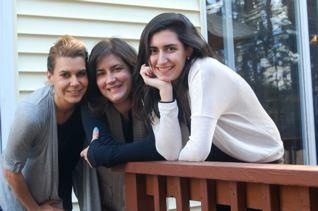I found out about the Boston Marathon bombings while at work Monday afternoon. The weekend prior had been USAU College Conferences for my team, Loyola University Chicago, and I was recapping the tournament and complaining about how sore it had left me to a few coworkers when the news broke. As I whined about my barely recovered legs, a new recovery process was unfolding across the nation, as one of America’s most storied cities lay shaken and mourning. My limbs were sore; for those caught in the blast radius, limbs were torn, mutilated, or lost.
Tragedy has a way of putting things into perspective.
As I write this one week later, America is still recovering. Bandaged by stories of courage and selflessness by emergency personnel, marathon runners, and average bystanders-turned-hero, we stand wounded but determined to see this out, as we have seen out countless such acts of senseless violence in the past. The venue of the attack, however, prompted discourse on the incongruous juxtaposition of sport and tragedy. Why was ESPN covering the attacks? Should they be? How should sports communities react in the face of such atrocity?

Celeste (center) and Sydney (right) were both severely injured in the bombings at the Boston Marathon. (Photo courtesy Scott Walfield)
For Scott Walfield, a Ph.D. candidate at University of Massachusetts Lowell, this question had an easy answer. After hearing that two Lowell residents, 18 year old Sydney Corcoran and her mother, Celeste, were caught in the blast—leaving Sydney severely injured and Celeste requiring both legs amputated—Walfield mobilized his UMass Lowell teammates to help organize a charity hat tournament to raise money to help pay their medical expenses.
“I was supposed to go to the marathon,” said Walfield, who canceled his plans to go after finding out that his girlfriend’s mother, who he had been planning to support, hurt her knee and had been advised by doctors not to run. “As fate would have it, I didn’t end up going. When I heard about everything, I thought to myself, if that had been me injured there, I would hope society would come together and help me out somehow….so that got me thinking, “How could I?” After contacting the owner local sports center, Tyngsboro Sports Center, who agreed to donate field space and staff for the tournament—named Seven On the Green Line in honor of the Green Line of the Boston T subway system—Walfield reached out to the ultimate community, seeking sponsorship and donations for the event. A full list of organizations that have donated to the tournament can be found at the bottom of the page.
Tournament registration is slated for Wednesday, April 24th, and is open to the first 100 players. Registration is $26—changed from the original price of $25 as a nod to the marathon—and will include a raffle ticket to be put towards a gear package made up of merchandise provided by the various donors. Jerseys will also be sold, and gift packages put together from donations from local businesses will be raffled off to UMass Lowell students, faculty, and staff. Between tournament registration, the various raffles, and a GoFundMe page for those who wish to donate, Walfield and his teammates hope to raise $10,000 for the Corcoran family. More information can be found on the tournament’s Facebook page.
Update: Registration for Seven On The Green line is now open here. The tournament has also officially announced SAVAGE as its apparel sponsor, and will be selling/raffling off 30 jerseys to help raise money. A few additional jerseys will also be sold on ebay for those unable to attend.
Official Donors:
AUDL
Boston Ironside
Boston Whitecaps
Chasing Sarasota/Rhino
Innova Discs
NexGen Ulimate Tour
PoNY
Skyd Magazine
Spikeball
UltiCoach
Ultimate Disc Store
Ultiworld
Feature photo courtesy Scott Walfield








Comments Policy: At Skyd, we value all legitimate contributions to the discussion of ultimate. However, please ensure your input is respectful. Hateful, slanderous, or disrespectful comments will be deleted. For grammatical, factual, and typographic errors, instead of leaving a comment, please e-mail our editors directly at editors [at] skydmagazine.com.